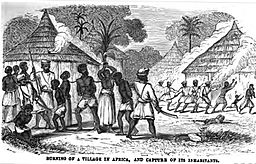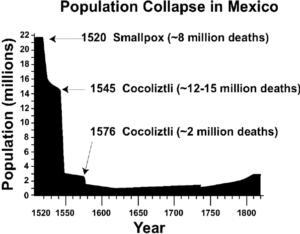
From Australia to the Americas Indigenous Peoples were dispossessed of their lands, and confronted by a cultural genocide that lasted centuries. Some native peoples of the Caribbean nearly vanished during a horrific period of epidemic disease, land loss, and overwork. The experience of the Spanish conquest was so terrible that many Indigenous families in the Caribbean simply chose to stop having children after the Spanish arrived (or were unable to maintain families), so that their populations declined with stunning speed. In Potosí, Bolivia thousands of Indigenous Peoples and African slaves died mining the silver that funded Spanish wars and palaces. While epidemic diseases devastated Indigenous communities, so did the entire structure of colonialism, which led to a demographic collapse throughout the Americas. This was so extreme that it lasted for centuries.
These peoples’ sufferings were only one part of a vast legacy of European domination, which imperial

Incredibly, nearly 40 years after the Marxist Bill Warren wrote Imperialism: Pioneer of Capitalism, colonialism still has its academic defenders. Nathan J. Robinson has a recent article, “Why Colonialism was Bad” in Current Affairs, which is a valuable reminder of colonialism’s horrors, and why they must not be forgotten. Warning- the article contains a disturbing photo.
Shawn Smallman, 2017
